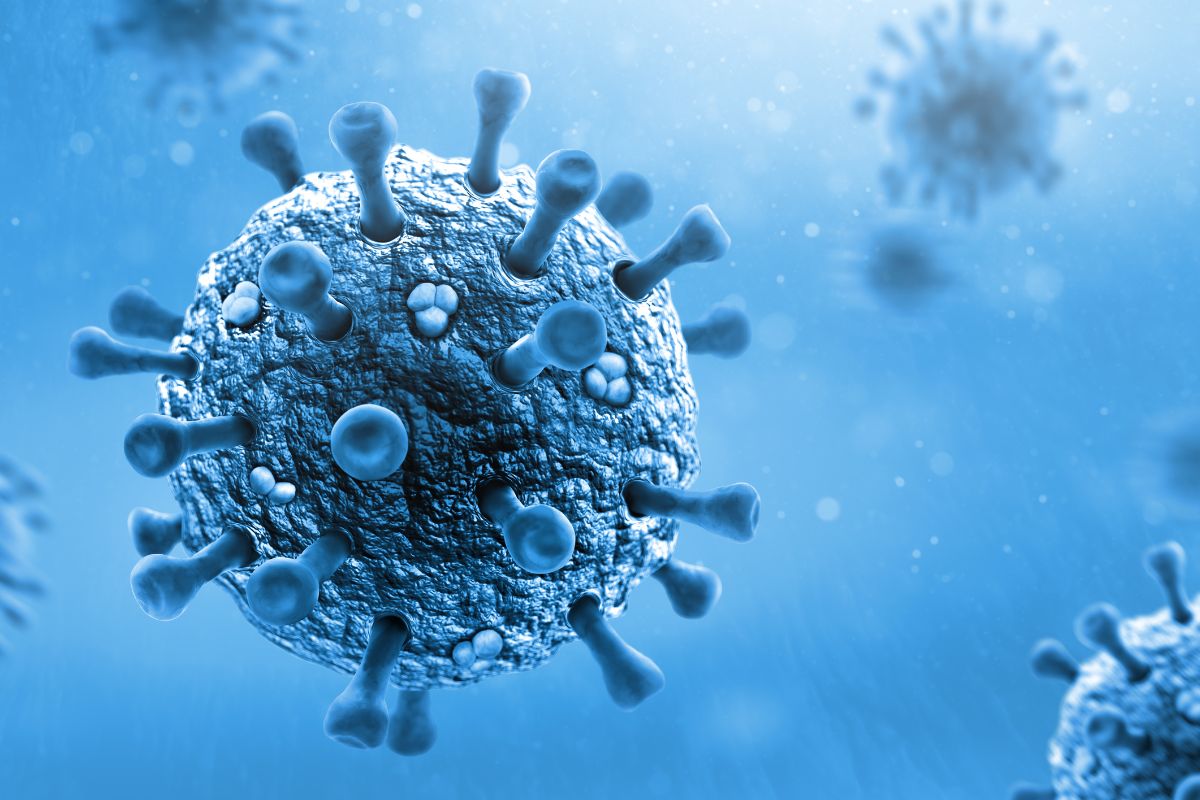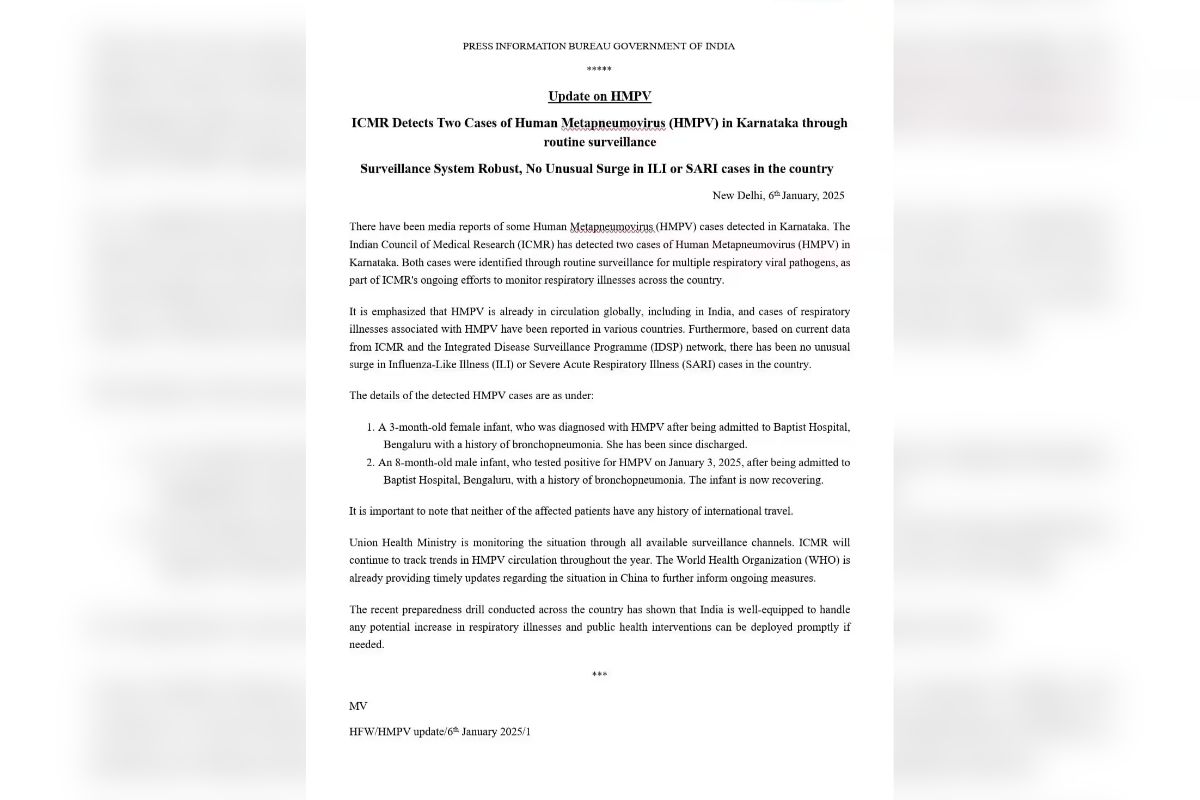


Two Human Metapneumovirus (HMPV) cases have been confirmed by the Indian Council of Medical Research (ICMR) from Bengaluru, Karnataka. Both cases include an 8-month-old male and a 3-month-old female who were found at Baptist Hospital by regular monitoring.
Bengaluru: An 8-month-old is suspected to have contracted Human Metapneumovirus (HMPV). The infant had no travel history and showed no concerning symptoms. #thebharatweekly #hmpvvirus #hmpv #Bengaluru pic.twitter.com/zi7H3UjZGv
— The Bharat Weekly (@bharatweekly_) January 6, 2025
Table of Contents
ToggleThe Ministry of Health and Family Welfare underlined that ICMR’s continuous monitoring of respiratory viral diseases included the detections. Officials claim that the issue is under control and that there is no odd increase in respiratory diseases within India. On January 4, a joint monitoring group meeting with the World Health Organisation (WHO), National Centre for Disease Control (NCDC), and other stakeholders examined worldwide trends in respiratory diseases.
Usually presenting symptoms like the common cold, human metapneumovirus causes:
The virus travels by respiratory droplets from coughing or sneezing and touching contaminated surfaces. Severe consequences are more likely in infants, senior citizens, and those with compromised immune systems.
The two newborns identified with HMPV in Bengaluru had not recently traveled. The female infant has been discharged; the male infant is still healing. The Health Commissioner of Karnataka, Harsha Gupta, comforted the people by saying that panic is not justified as the HMPV finding is not exceptional. Not one new strain or a notable increase in instances has been noted.

Also read: Ankush Bahuguna Exposes 40-Hour Digital Arrest Scam
Rising respiratory diseases have also been related to HMPV in other countries, including China. WHO reports show that HMPV, RSV, and influenza mostly explain the seasonal infection increase. The Indian government responded by increasing laboratory testing capacity and bolstering surveillance initiatives such as the Integrated Disease Surveillance Program (IDSP). Advice to hospitals throughout India:
Update on #HMPV
.@ICMRDELHI Detects Two Cases of Human Metapneumovirus (HMPV) in Karnataka through routine surveillance
Surveillance System Robust, No Unusual Surge in ILI or SARI cases in the countryhttps://t.co/uXIgltmOdE
— Ministry of Health (@MoHFW_INDIA) January 6, 2025
The Indian Council of Medical Research (ICMR) has detected two cases of Human Metapneumovirus (HMPV) in Karnataka. Both cases were identified through routine surveillance for multiple respiratory viral pathogens, as part of ICMR’s ongoing efforts to monitor respiratory illnesses… pic.twitter.com/PtKYmgztKb
— ANI (@ANI) January 6, 2025
Director General of Health Services, Dr. Atul Goel advises following respiratory hygiene guidelines including:
The government reassures us that India is suited to control respiratory diseases and keeps close observation of the matter using strong surveillance systems.

